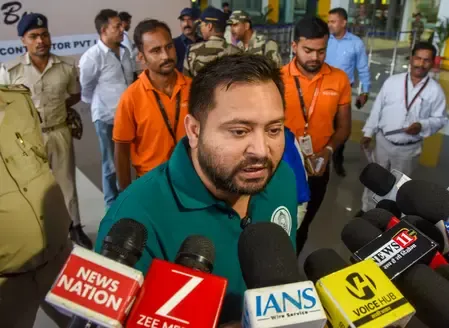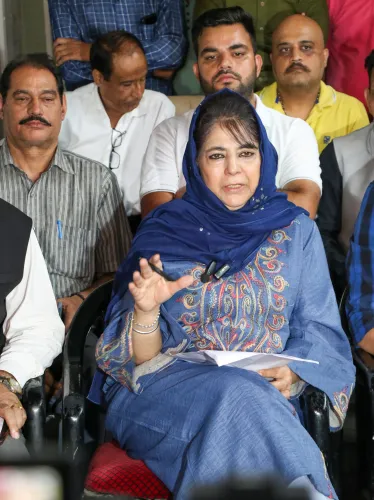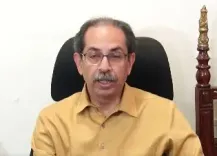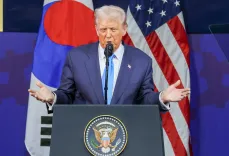Is Bengal BJP Using Aadhaar Data to Highlight State-Promoted Infiltration?
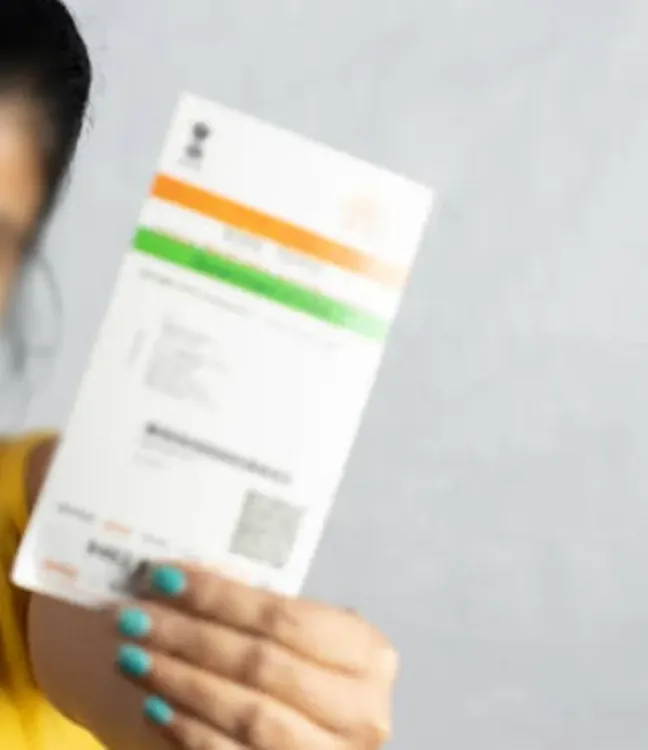
Synopsis
Key Takeaways
- BJP's reliance on Aadhaar data to support infiltration claims.
- High saturation levels raise concerns about illegal immigration.
- Political implications ahead of elections.
- State government’s opposition to Aadhaar as proof of citizenship.
- Need for balanced discourse on immigration issues.
Kolkata, July 11 (NationPress) The BJP's West Bengal unit is heavily utilizing Aadhaar saturation data from specific regions in the state to support its claims of state-backed infiltration from Bangladesh. The party has been vocal in accusing the ruling Trinamool Congress and the current administration of fostering illegal immigration from Bangladesh, allegedly aiding these individuals in settling within different regions by unlawfully granting them Indian identification documents.
The party's state unit has initiated the collection of area-specific Aadhaar saturation data to pinpoint areas where saturation exceeds 100%, indicating that there are more Aadhaar cardholders than residents.
A member of the state committee for BJP in West Bengal pointed out that in Bihar, which is preparing for elections this year, the overall Aadhaar saturation stands at 94%, while in minority-heavy districts like Purnia, Katihar, Araria, and Kishanganj, saturation levels range between 121% and 126%.
“If the scenario in Bihar is alarming, the situation in West Bengal is equally concerning. Hence, we are gathering area-specific Aadhaar saturation data to uncover the true motives behind the ruling party's emphasis on accepting Aadhaar as proof of citizenship and its resistance against identifying illegal infiltrators in the state,” the committee member stated.
He also noted that according to preliminary data, numerous Assembly constituencies in Kolkata and its neighboring districts of Howrah, South 24 Parganas, and North 24 Parganas exhibit Aadhaar saturation levels exceeding 100%.
“We are convinced that similar situations exist in constituencies within districts such as Malda, Murshidabad, Cooch Behar, and North Dinajpur. As we compile comprehensive data, more discrepancies in Aadhaar saturation levels will come to light,” the committee member asserted.
He further alleged that this is precisely why West Bengal Chief Minister Mamata Banerjee is opposing the Special Intensive Revision (SIR) of electoral rolls, labeling it an indirect approach to enforce NRC in the state.


